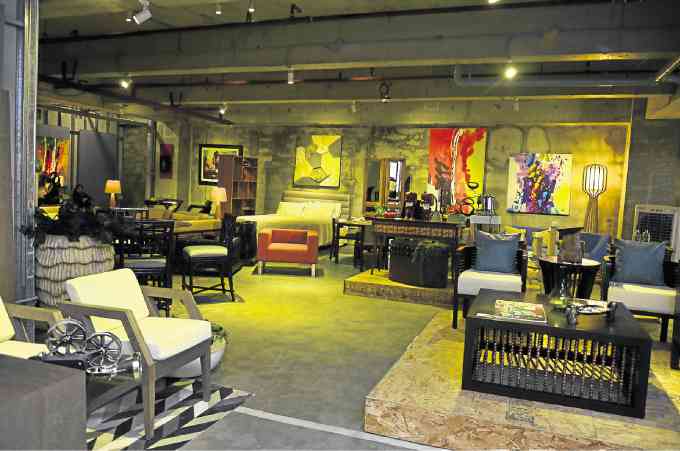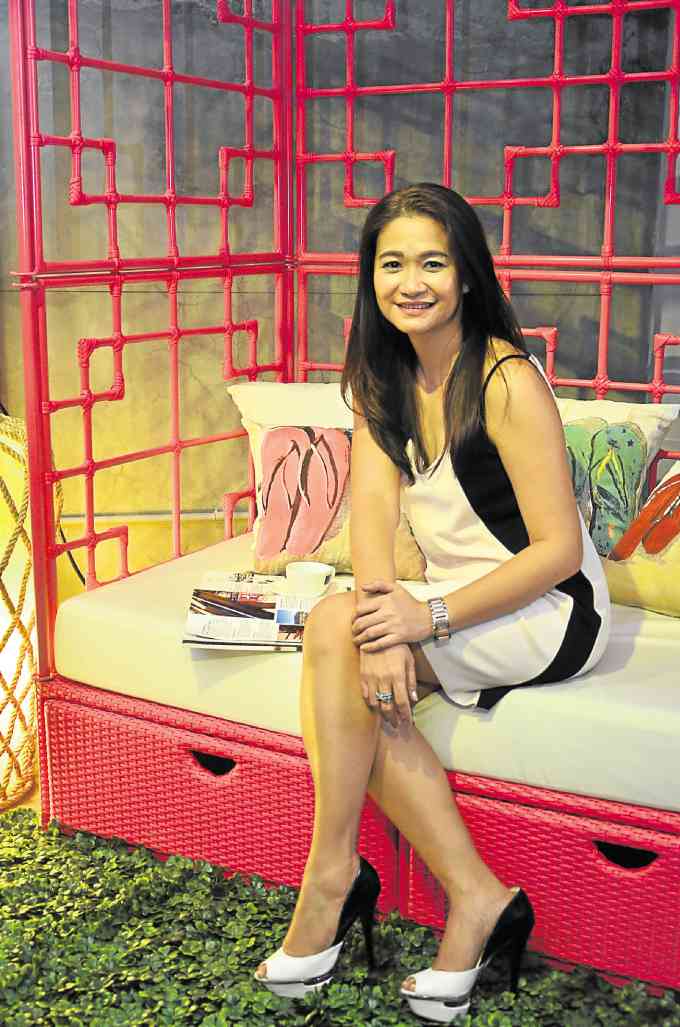
Unique furniture from Cebu-based companies are featured in Elaine Cooper’s by-appointment-only gallery.
CEBU CITY—The gallery at the 12th floor of Link Building inside Cebu IT Park here is a showroom of Cebuano craftsmanship reflected in exquisite dining and living room furniture and accent pieces.
“The designs and details of Cebu-made furniture pieces are way better than their European or American counterparts,” says Elaine Cooper, shop owner and interior decorator.
Italian-made furniture, for example, “is good, but it’s nothing that the Philippines can’t do,” she adds.
Customers can marvel at the evidence for themselves in this shop simply called Elaine Cooper Gallery, although viewing is by appointment.
“I have been in the business of designing for the high-end clientele in the last 10 years and I can confidently say that the interest of this market in top-of-the-line pieces has not waned, even at the height of the global financial crisis,” says Cooper, who comes from a Chinese-Filipino family that owns a steel and glass business.
She opened the shop, featuring furniture pieces she herself chose from eight Cebu-based companies, to support and highlight Cebuanos’ creativity and woodworking skills.
Cooper credits local ingenuity to the abundance of natural resources, which, she says, inspires Cebuanos to make the most intricate designs.
Fascination with fabric
Her interest in furniture started in the mid-1980s while she was studying at Slim’s School of Fashion in Manila.
At first, Cooper was fascinated with fabric and the creations she can make out of the clothing material.
When she was a senior high school student at Cebu Eastern College, she designed and made the dresses of her classmates for their prom, and earned money from the endeavor.
She dabbled in other businesses before she found her way to decorating and beautifying homes and spaces.
She had a boutique called Harvest, which opened from the late 80s to early 90s.
For eight years, she also managed a flower shop called Centerpiece, which catered to upper-class clientele.
It was from this network that she gained referrals to serve as interior decorator in various projects, even choosing furniture pieces and curtains for the Radisson Blu Hotel Cebu and Cebu City Marriott Hotel.
Cooper’s passion for the arts has led her to full-time interior decorating, doing soft furnishings, such as upholstery work and window treatment, under Cooper and Albert.
In 2008, at the height of the global financial crisis, she created Elaine Cooper Interiors.
In her gallery, Cooper captures the best of Cebuano furniture designs in a setting that gives clients a peek into how to use their spaces for furniture pieces and how to display home furnishings and decor, as well as paintings.
Interior design
She is careful to note, though, that she is not a licensed interior designer.
“I feel that this is what I am called to do. I don’t need a license to practice my passion,” she explains.
But who needs a license when she is being sought to seal deals through referrals and word-of-mouth?
That does not mean she is complacent. She does extensive research, travels to enrich her learning and attend shows and exhibits to update her knowledge and skills.
Cooper’s strategy has always been about moving forward and creating the best art concepts possible.
“Each concept is carefully thought of. It’s blood, sweat and tears. It’s an exhausting and tiring job because it is very detailed and it involves a lot of brain work and creativity,” she says.
By putting premium on the Elaine Cooper brand, she is also emphasizing the fact that the Cebuano talent is to be revered and recognized worldwide.
No, she is not married to a foreigner. She considers her last name a blessing as it creates a brand that may exude sophistication and class.
“When people read my name, they often say, ‘Oh, she sounds expensive.’ In fact, during our first meetings, my clients are often surprised when they learn that I am not American or married to a foreign national. Since I was raised by a Chinese father, they are also surprised that I can speak Fookien,” she says.
“I am happy to note that in the high-end market scene, business is really good,” Cooper says. “Cebu is still the center of furniture design. Cebu-made furniture pieces serve as highlights of my gallery. It is a worthy cause to support locally made products.”


